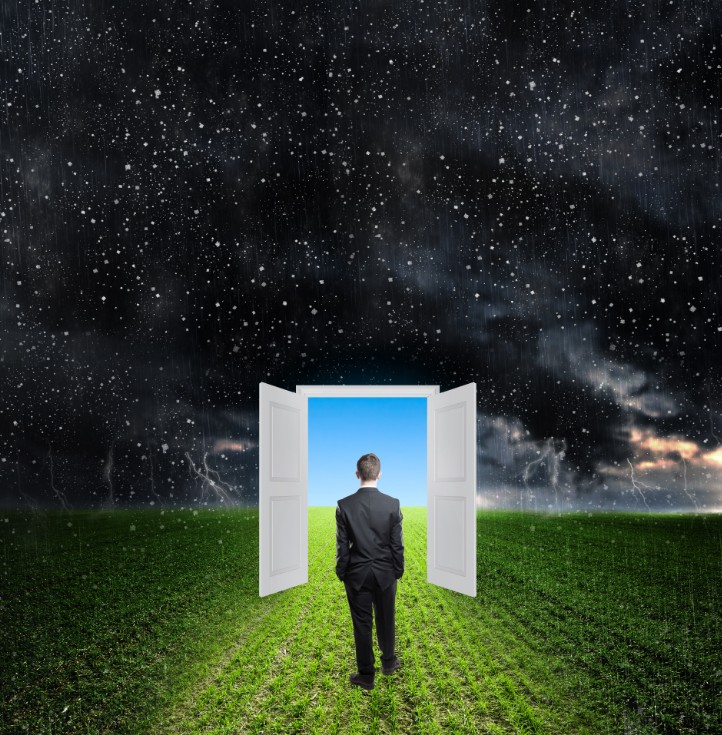Faith
Where Is Free Will If Everything Is Influenced?
The balance between divine providence and human choice, and why our true freedom lies in how we respond
- Daniel Blass
- |Updated

Sam asks: "Hello. It seems that every action is influenced by something — our choices are shaped by earlier events, our upbringing, things we were exposed to, and so on. So my question is: where does free will come in, if everything is always influenced by circumstances that God created for us? Thank you."
* * *
Hello Sam, and thank you for your insightful question.
The sages summed up your point in one powerful phrase: “Everything is in the hands of Heaven, except the fear of Heaven” (Talmud, Berachot 33b).
Even more explicitly, the Talmud (Niddah 16b) teaches: "An angel appointed over conception takes a drop [of seed] and places it before the Holy One, Blessed be He, and says: Master of the Universe, what shall become of this drop? Will it be strong or weak, wise or foolish, rich or poor? But whether it will be righteous or wicked — this he does not say."
God indeed sets all the circumstances of our lives including our environment, our tests, and our experiences, but He leaves one thing in our hands: how we respond.
Where Choice Really Lies
Ethical works explain that if negative thoughts arise during prayer or holy moments, a person should not despair. Those thoughts are part of the test assigned to him from Heaven, not chosen. Our responsibility is how we deal with them — whether we redirect our focus and elevate the moment.
Every day, God places us in new tests. We don’t choose the situations or the challenges, but we do choose how to act within them. That’s why the sages taught: “Judge every person favorably” (Pirkei Avot 1:6) — because people face trials we cannot see.
Rabbi Dessler’s “Point of Free Will”
Rabbi Eliyahu Dessler, in his classic Michtav Me’Eliyahu (Essay on Free Will), describes the point of choice (nekudat habechira) that every individual has.
For a righteous person, that choice might be how deeply to focus in prayer or how much effort to put into Torah study. For someone raised among criminals, his free choice might be whether or not to kill. Each person’s test is relative to his background, his circumstances, and even his spiritual debts from past lives.
No person chooses their tests, but everyone has a point of free will. If a person uses it well, it can open entire new worlds, transform darkness into light, and bring him closer to God. As the Midrash says: “Open for Me an opening the size of a needle’s eye, and I will open for you an opening the size of a grand hall” (Shir HaShirim Rabbah 5:2).

A Psychological Perspective – Viktor Frankl
Dr. Viktor Frankl, a Holocaust survivor and author of Man’s Search for Meaning, expressed this idea from a psychological perspective. He described how, even in the concentration camps, people showed incredible courage in the face of despair.
For example, he recalled a Nazi officer mocking a weak Jewish prisoner as a coward. The man replied: “Yes, I am a coward. But if you were as afraid as I am now, you would have already run away in panic!”
Frankl saw in this response the essence of free will: even under extreme fear, a person still has the power to choose his attitude. He argued that although we cannot control emotions like fear, anger, or frustration, we can choose how to respond to them.
Jewish tradition says the same. A person born under the astrological sign of Mars and naturally inclined toward bloodshed, is not destined to be a murderer. He can channel his nature into being a ritual slaughterer, a mohel, a surgeon, or a medic and use that trait for good. The Talmud even teaches that King David was born under such a sign but directed his fiery nature into fighting Israel’s enemies (Shabbat 155–156).
You do not control the events in your life. You don’t even control which thoughts pop into your mind. But you do control your response — your yirat shamayim (awe of Heaven), your decision to do good, to trust in God, and to rise above temptation.
That point of choice is your true free will, and it defines who you really are.

